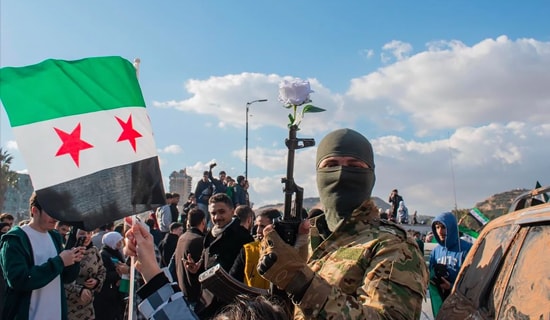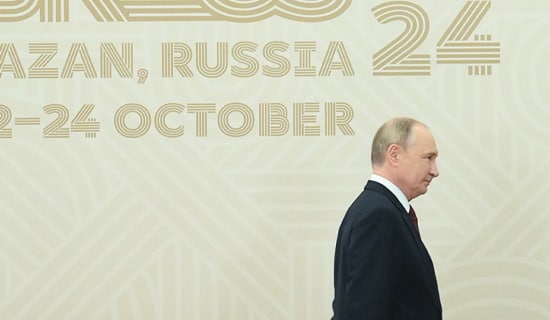Iranian officials recently began to reveal details from the nuclear negotiations with the U.S. since their early stages. Their statements indicate that the U.S. initiated secret negotiations with Iran not after President Hassan Rohani, of the pragmatic camp, was elected in 2013, but rather in 2011-2012, in the era of radical president Mahmoud Ahmadinejad.[1] The disclosures also indicate that, already at that time, Iran received from the U.S. administration a letter recognizing its right to enrich uranium on its own soil. Hossein Sheikh Al-Islam, an advisor to the Majlis speaker, specified that the letter had come from John Kerry, then a senator and head of the Senate Foreign Relations Committee. Iranian vice president and top negotiator Ali Akbar Salehi said that Kerry, while still a senator, had been appointed by President Obama to handle the nuclear contacts with Iran.
The following are initial details from these disclosures; a full translation is pending.
Khamenei: Bilateral Talks Began In 2011, Were Based On U.S. Recognition Of Nuclear Iran
In a speech he delivered on June 23, 2015, Iran's Supreme Leader Ali Khamenei said that the American administration had initiated the nuclear talks with Iran during Ahmadinejad's term in office, based on a U.S. recognition of a nuclear Iran: "The issue of negotiating with the Americans is related to the term of the previous [Ahmadinejad] government, and to the dispatching of a mediator to Tehran to request talks. At the time, a respected regional figure came to me as a mediator [referring to Omani Sultan Qaboos] and explicitly said that U.S. President [Obama] had asked him to come to Tehran and present an American request for negotiations. The Americans told this mediator: 'We want to solve the nuclear issue and lift sanctions within six months, while recognizing Iran as a nuclear power.' I told that mediator that I did not trust the Americans and their words, but after he insisted, I agreed to reexamine this topic, and negotiations began."[2]
Hossein Sheikh Al-Islam: Kerry Sent Iran A Letter Via Oman Recognizing Iran's Enrichment Rights
In an interview with the Tasnim news agency on July 7, 2015, Hossein Sheikh Al-Islam, an advisor to Majlis Speaker Ali Larijani, said that John Kerry had relayed a letter to Tehran recognizing Iran's enrichment rights: "We came to the [secret] negotiations [with the U.S.] after Kerry wrote a letter and sent it to us via Oman, stating that America officially recognizes Iran's rights regarding the [nuclear fuel] enrichment cycle. Then there were two meetings in Oman between the [Iranian and U.S.] deputy foreign ministers, and after those, Sultan Qaboos was dispatched by Obama to Khamenei with Kerry's letter. Khamenei told him: 'I don't trust them.' Sultan Qaboos said: 'Trust them one more time.' On this basis the negotiations began, and not on the basis of sanctions, as they [the Americans] claim in their propaganda."[3]
Salehi: Obama Appointed Senator Kerry To Handle The Nuclear Dossier Vis-à-vis Iran; Later He Was Appointed Secretary Of State
Iranian Vice President Ali Akbar Salehi and head of Iran's Atomic Energy Organization, who was restored to the nuclear negotiation team this year, served as Iran's foreign minister in 2010-2013. In interviews he has given on Iranian media since April 2014, he too claimed that the Americans initiated the secret talks with Iran in 2011-2012, and stressed his role in jumpstarting the process from the Iranian side. In a comprehensive interview with the daily Iran on August 4, 2015, he elaborated on the secret contacts initiated by the Americans. The following are excerpts from the interview:
Interviewer: "Why was Oman chosen as a mediator?"
Salehi: "We have very good relations with Oman. When [Supreme Leader Ali] Khamenei referred recently to a distinguished head of state in the region, he was of course referring to the Omani ruler. Oman is respected by the West as well, and has already mediated between America and Iran, such as in the matter of the American hikers arrested in Iran... When [Deputy Foreign Minister] Qashqavi was there, an Omani official gave him a letter stating that the Americans were prepared to negotiate with Iran and were very interested in resolving this Tehran-Washington challenge. We were also willing to assist in order to facilitate the process, and it looked like this was a good opportunity. At that time, the election in America had not yet begun, but Obama had launched his reelection campaign. The Omani message came during the [Obama-Romney] election rivalry, but there was still time before the election itself. At that time, I did not take this letter seriously."
Interviewer: Why didn't you take it seriously? Was it because the letter came from a mid[-level] Omani official?"
Salehi: "Yes. We were [concerned about] this, because the letter was handwritten and at that time I was not acquainted with the official [who had written it]. Some time later, Mr. [Mohammad] Suri, who was director of an Iranian shipping [company - the National Iranian Tanker Company], visited Oman to promote issues related to shipping and to speak to Omani officials."
Interviewer: "How long after the first letter [did Suri arrive in Tehran]?"
Salehi: "He came to me about a month or two after the first letter was sent, and said: 'Mr. Salehi, I was in Oman promoting shipping matters, and an Omani official told me that the Americans were prepared to conduct bilateral secret talks on the nuclear dossier.' It was clear that they were interested in negotiating... [The Omani official who wrote the letter] was a man named [Salem bin Nasser Al-]Ismaily, who at the time was an advisor for the Omani ruler, and who still works for the Omani Foreign Ministry. He had good relations with the Americans and was trusted by Omani officials. I told Suri: 'I am not sure how serious the Americans are, but I will give you a note. Tell them that these are our demands. Deliver it on your next visit to Oman.' I wrote down four clear issues, one of which was official recognition of rights to [uranium] enrichment. I figured that if the Americans were sincere in their offer, then they must agree to these four demands. Mr. Suri gave this short letter to the mediator, and stressed that these were Iran's demands. [He added that] if the Americans wished to solve this issue, they were welcome to, otherwise dealing with White House proposals would be useless and unwarranted..."All the demands in the letter were related to the nuclear challenge. These were issues we have always come against, such as closing the nuclear dossier [in the Security Council], official recognition of [Iran's] right to enrich [uranium], and resolving the issue of Iran's actions under the PMD [Possible Military Dimensions]. After receiving the letter, the Americans said: 'We are certainly willing and able to easily solve the issues Iran has brought up.'"
Interviewer: "With whom was the American side in contact?"
Salehi: "They were in contact with Omani officials, including the relevant functionary in the Omani regime. He was a friend of the U.S. secretary of state. At that time, Kerry was not secretary of state, but head of the Senate Foreign Relations Committee. In any case, after I received an affirmative answer from the Americans, I deduced that the ground was prepared for more steps in this direction. That is why I asked the Omanis to send an official letter to Iran so I could present it to Iranian officials. I assessed that this was a good opportunity and that we could derive benefit from it... They did so, and I presented the letter to[Iranian] regime officials and went to the leader [Khamenei] to explain the process in detail.
Interviewer: "What was the Americans' position in the first meetings between Iran and the P5+1 held during the Rohani government [era]?"
Salehi: "After the Rohani government began to operate - along with the second term of President Obama - the new negotiations between Iran and the P5+1 were started. By then, Kerry was no longer an American senator but had been appointed secretary of state. As a senator, Kerry had been appointed by Obama to be in charge of handling the nuclear dossier, and then [in December 2012] he was appointed secretary of state. "Before that, the Omani mediator, who had close relations with Kerry, told us that Kerry would soon be appointed [U.S.] secretary of state. During the period when the secret negotiations with the Americans were underway in Oman, there was a situation in which it was easier to obtain concessions from the Americans. After the Rohani government and the American administration [of Obama's second term] took power, and Kerry become secretary of state, the Americans spoke from a more assertive position. They no longer showed the same degree of eagerness to advance the negotiations. Their position became harder, and the threshold of their demands rose. At the same time, on the Iranian side, the situation [also] changed, and a most professional negotiating team took responsibility for negotiating with the P5+1."[4]
'Nuclear Iran' Website: Three Rounds Of Talks With The U.S. Took Place Before Iran's 2013 Elections
The "Nuclear Iran" website, which is affiliated with Iran's former nuclear negotiation team and which supports the ideological camp, reported on April 20, 2014 that "Two additional conditions, out of the four conditions [set out by Khamenei], were that foreign minister [Salehi] himself not take part in the talks, and that the negotiations yield tangible results at an early [stage]. The policy for these negotiations was set out by a committee of three figures, [all of them] senior government officials, though Ahmadinejad himself did not have much of a role in it. The main strategy in these negotiations was [handing] America an ultimatum and exposing its insincerity and untrustworthiness. Before the 2013 presidential elections, three rounds of talks took place in Oman, and at these talks the Americans officially recognized Iran's [right] to enrich [uranium]..."[5]
Endnotes:
[1] This is in contrast to what was implied by U.S. President Obama on July 14, 2015, when he announced the nuclear deal with Iran in a speech that began with the words "After two years of negotiations..." Whitehouse.gov, July 14, 2015.
[2] Leader.ir, June 23, 2015. Ahmad Khorshidi, a relative of Ahmadinejad's, told the website Entekhab in 2014 that negotiations between Tehran and Washington did not start during President Rohani's term. He said that during the Ahmadinejad period, there were three rounds of talks between the sides, which were also attended by then-foreign minister Ali Akbar Salehi. Entekhab.ir, June 11, 2014.
[3] Tasnim (Iran), July 7, 2015.
[4] Iran (Iran), August 4, 2015.
[5] Irannuc.ir, April 20, 2014.





